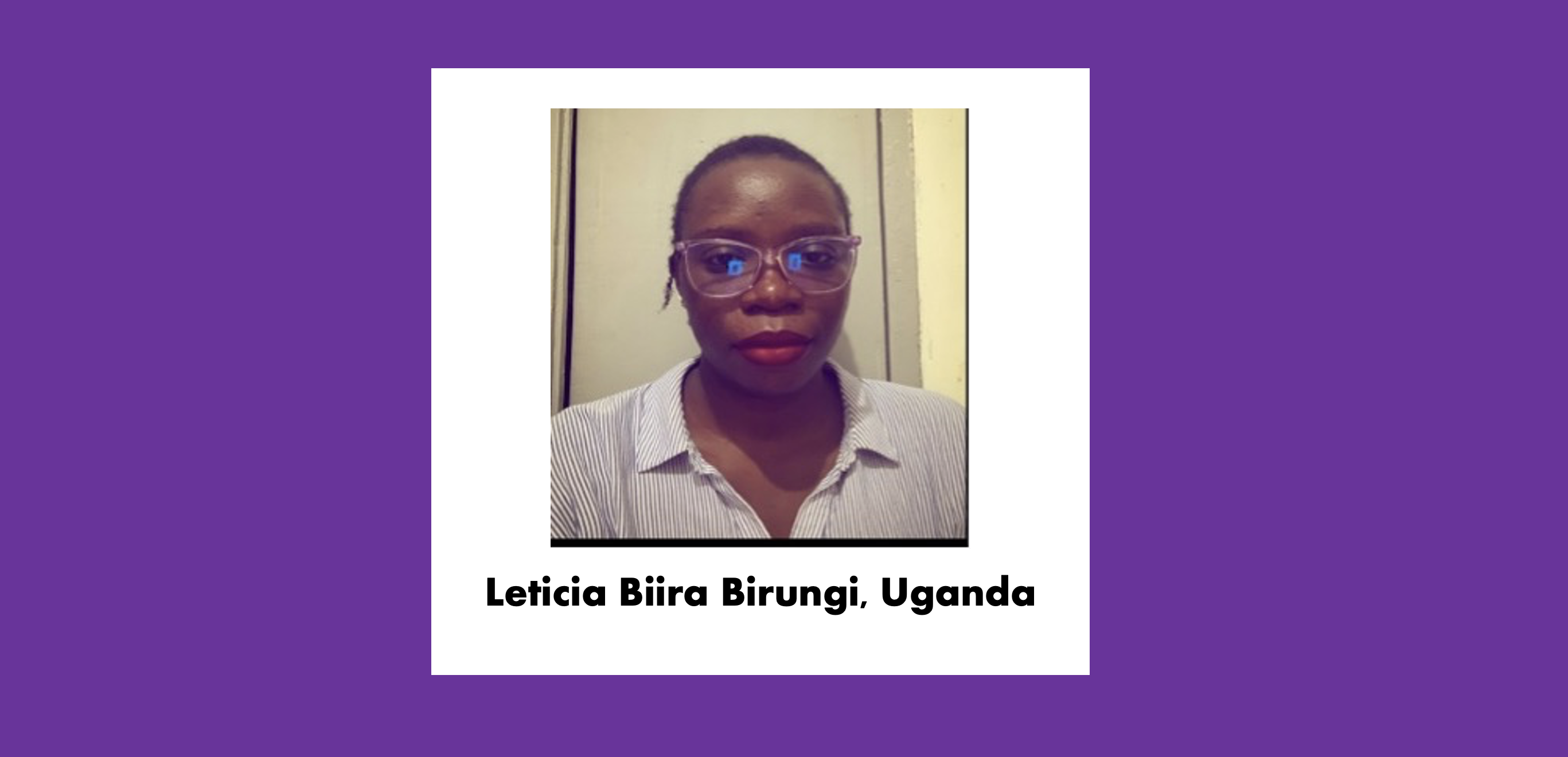Leticia Biira Birungi
Leticia is a clinical psychologist in Uganda
Link to Leticia’s short bio here
Leticia is a Clinical Psychologist who believes that a patient’s care should be a clinician’s first priority. She has been in humanitarian work for 2 years now, offering community based psychotherapy to both refuges and nationals in Uganda. She has worked on various projects in the West Nile region of Uganda to provide comprehensive mental health and psychosocial services for persons of concern by donors such as Education Cannot Wait, UNHCR, UNWOMEN, DCA and START ALERT. Leticia specialises in War, SGBV, other types of Trauma and Behavioural problems.
“People with mental health conditions deserve just as much support and compassion as those suffering from physical illness.”
In my work as a clinical psychologist, I have been part of initiatives to bring mental health and psychosocial support to the communities in refugee settlements where access to such services is usually scarce. The team with whom I work has modified the treatment of clinical mental health disorders to include the entire community. This is because in most African communities, mental health is still fairly new and unheard-of; ignorance still plays a large role in precipitating and perpetuating illness. However slow, it is getting better.
A number of times I have found myself at the centre of a human rights issues such as forced marriage, denial of education, confinement and discrimination among others. Issues of discrimination are rampant and still on the rise despite efforts to educate the community against it. I have come across discrimination due to race, discrimination of the mentally ill, the disabled, the intellectually challenged and so many others.
For the two years, I have been working in a refugee camp in Uganda and among other situations, I have mostly encountered the discrimination of persons with mental health disorders especially those with intellectual difficulties such as Down syndrome as well as persons with neurological problems like epilepsy.
For such communities, having a diagnosis such as epilepsy comes with serious consequences. Any family or community member suspected of having the disorder is immediately isolated. They are forced to live alone, cook and eat alone and sadly for children, not allowed to play with other children. This discrimination stems from the belief that epilepsy is contagious, and one can get it from simple body contact. They also believe that a person suffering from this disorder is disabled and therefore shouldn’t be allowed to work or go to school especially due to the prolonged cognitive effects on a person who has had multiple seizures over time. On many occasions, I have visited homes, where the person suffering from this disorder is hidden away from visitors and not counted as part of a household during a census because it brings shame on the family to include them.
In the case of Down syndrome, the community believes that it stems from generational curses and therefore the devil or witchcraft is at play. The children suffering from this condition are usually looked at as nearly not human and as a mistake, often left alone to their own devices, not fed, bathed or looked after in any manner. They eventually die if interventions aren’t taken quickly.
As psychologists, we incorporate and encounter human rights issues in our practice daily and we have a responsibility to treat our clients with fairness and equity. All human beings have the fundamental right to equality, freedom from discrimination, right to life, liberty, personal security, right to marriage and family, to own property, freedom of belief and religion, freedom of opinion and information, right to education, and the right to participate in the cultural life of community among others. Honouring those rights and keeping our commitments to those we serve and to the greater social community exemplifies the principle of fidelity. In doing so, we build trusting relationships with our clients, building positive interactions and improved psychological wellbeing.
Teaching the community about human rights and the significance of any life no matter how reduced one’s circumstances may seem, has been essential in our mass awareness into mental health and the psychoeducation given to these communities on intellectual disabilities and epilepsy. I am proud to say for the past two years, cases of discrimination against the mentally ill, especially those with epilepsy has reduced significantly. We now see the same families that previously treated their ill as not part of others much better, understanding the illness, adhering to drugs and most importantly, actively getting involved in their recovery and involving these formerly discriminated in community activities.
The journey isn’t complete; this is only the beginning. We fight for our clients’ rights every day, so that one day we can say that we have a brighter future where communities are enjoying good mental health.

